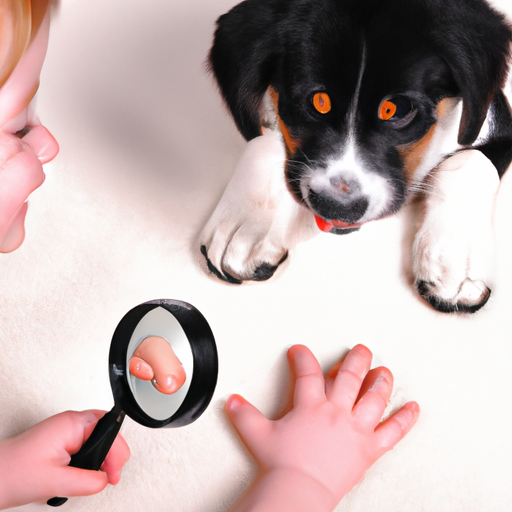Welcome, caregivers! If you’re wondering whether your adorable new pup’s tiny, needle-sharp teeth will fall out, you’re not alone. Let’s take a deep dive into the world of canine oral health and answer that question.
1. Understanding Puppy Teeth
Just like human babies, puppies are not born with teeth. They begin teething around 2 to 4 weeks of age. By the time they’re 6 to 7 weeks old, they should have all 28 of their baby teeth. These are also known as primary or deciduous teeth.
2. The Teething Process
Yes, indeed! Your puppy’s teeth do fall out. This process, also known as exfoliation, is a normal part of puppyhood. It ensures the way for the permanent, adult teeth to come in. Here’s a rough timeline:
- 2 to 4 weeks: Deciduous teeth begin to erupt.
- 3 to 6 months: Deciduous teeth begin to fall out, and adult teeth start coming in.
- 6 to 7 months: By this time, most puppies should have all of their 42 adult teeth.
3. Spotting the Signs of Teething
During the teething process, you may notice:
- Increased chewing: Puppies often chew more during this period to relieve the discomfort.
- Bleeding gums: A small amount of blood is normal.
- Lost teeth: You might find tiny teeth around the house, but often puppies swallow them.
4. How to Help Your Teething Puppy
To help your little fur-baby navigate this uncomfortable phase, consider the following:
- Provide chew toys: Chewing can ease teething discomfort. Just make sure the toys are safe and puppy-appropriate.
- Use frozen treats: Just like with human kids, cold things can numb the discomfort. Try a frozen carrot or special puppy teething treats.
- Schedule regular vet checkups: Your vet can ensure everything is progressing normally.
5. Potential Problems to Watch For
While teething is a normal process, there can be complications. Keep an eye out for:
- Persistent baby teeth: Sometimes, a baby tooth doesn’t fall out, which can cause problems for the incoming adult tooth. Your vet may need to extract it.
- Broken teeth: If your puppy is a vigorous chewer, they might break a tooth. This can lead to pain and infection.
6. Adult Teeth: What to Expect
Once the teething phase is over, your puppy will have a set of 42 adult teeth. These should last them their lifetime, provided they receive proper dental care. Regular brushing and vet checkups are key to keeping your dog’s mouth healthy.
7. The Importance of Dental Care
Just like in humans, dental health in dogs is crucial for their overall health. Poor oral hygiene can lead to a host of problems, including gum disease, tooth decay, and even heart disease. Therefore, make sure to brush your dog’s teeth regularly and provide them with dental chews.
8. Frequently Asked Questions
Q: When do puppies start losing their teeth?
A: Puppies usually start losing their teeth around 3 to 6 months of age.
Q: What can I give my teething puppy to chew on?
A: Safe, puppy-appropriate chew toys and frozen treats can help alleviate teething discomfort.
Q: Do I need to brush my puppy’s teeth?
A: Yes, regular brushing is an important part of maintaining your puppy’s oral health.
Q: What should I do if my puppy has a broken tooth?
A: If your puppy breaks a tooth, it’s important to see your vet as soon as possible to avoid pain and infection.
In conclusion, yes, your puppy’s teeth will fall out to make way for their adult teeth. This is a perfectly normal process, but it’s important to provide them with appropriate care to ensure their oral health.



